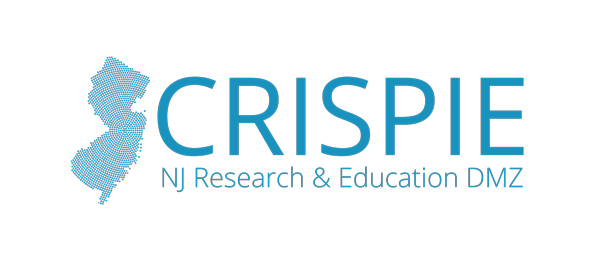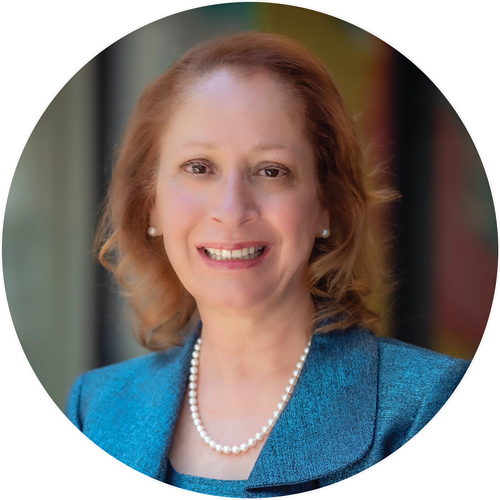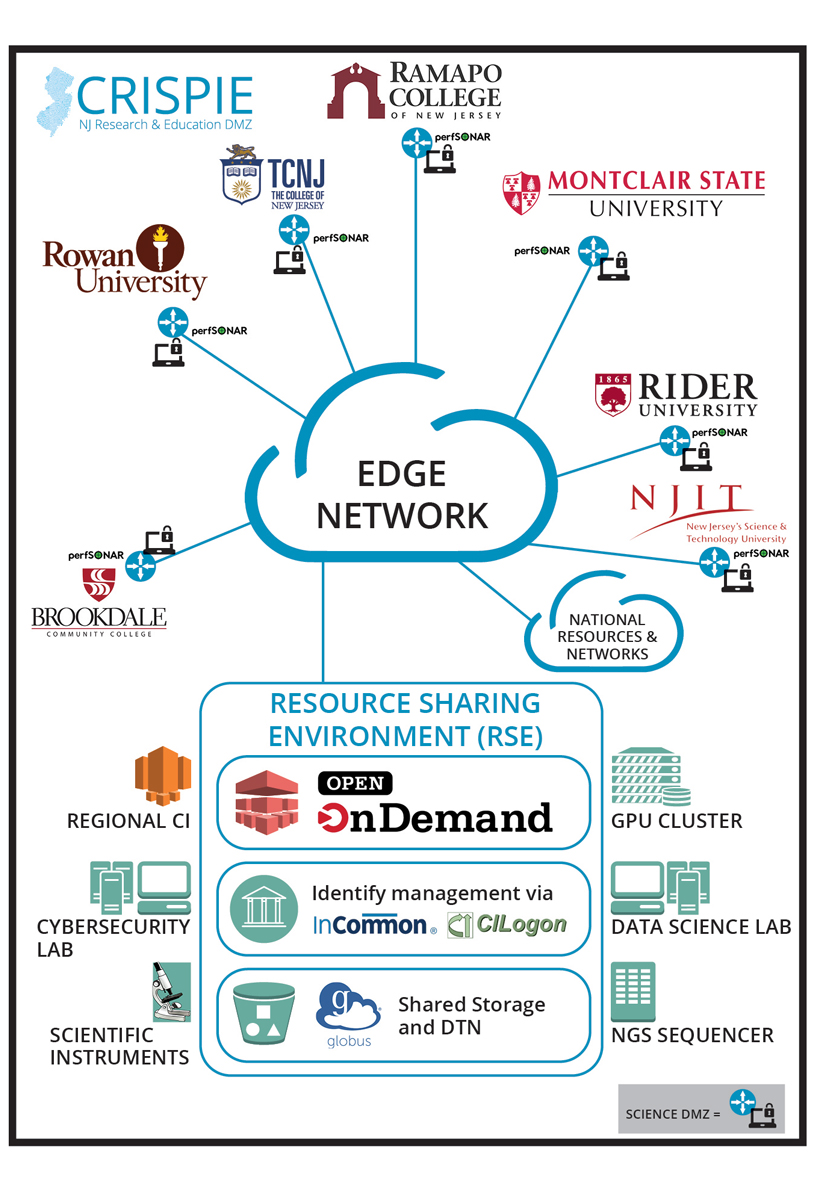CRISPIE
Connectivity through Regional Infrastructure for Scientific Partnerships, Innovation, and Education



U.S. National Science Foundation CC* Regional Networking: Connectivity through Regional Infrastructure for Scientific Partnerships, Innovation, and Education (CRISPIE)
Edge is collaborating with six higher education institutions in New Jersey, including Minority Serving Institutions (MSIs) and community colleges, to improve access to advanced research networks and related cyber-infrastructure, aiming to reduce disparities for smaller and less resourced institutions. This initiative focuses on enhancing internet connectivity, deploying network monitoring and optimization capability, and offering specialized training programs to bolster research and education and enhance professional IT support.

PI – Forough Ghahramani
AVP, Research & Innovation, Edge
email »

Co-PI- Tabbetha Amanda Dobbins
Dean of the Graduate School; Professor, Department of Physics & Astronomy, Rowan University
email »

James Barr von Oehsen
Vice Chancellor for Research Computing; Director, Pittsburgh Supercomputing Center, University of Pittsburgh | Pitt Research; Research Professor, Electrical and Computer Engineering, Carnegie Mellon University
email »

Stefan Robila
Professor of Computer Science and the Director of the Computational Sensing Laboratory, Montclair State University
email »

Eric William Marshall
Director of Advanced Computing Infrastructure, Office of Advanced Research Computing, Rutgers, The State University of New Jersey
email »
Upcoming Events and Presentations
Machine Learning and BIG DATA
Presented by The Pittsburgh Supercomputing Center (PSC)
February 11 & 13, 2026
Princeton University (In-Person Workshop)
Visualization Laboratory Commons Building, Room D119
The NJBDA, Edge, and Princeton University invite students and faculty to attend the workshop!
This workshop will focus on topics including big data analytics and machine learning with Spark, as well as deep learning.
This will be an IN PERSON event hosted by various satellite sites, there WILL NOT be a direct to desktop option for this event.
THERE IS NO REGISTRATION FEE TO ATTEND.
Please sign up with ACCESS and log into the ACCESS site prior to attempting to register for the event.
Registration details are here »
ONCE YOU HAVE LOGGED INTO ACCESS, please click on the Princeton University site to attend and you will be directed to the ACCESS registration system.
Please contact Forough Ghahramani or Galen Collier if you have any questions.
This event is sponsored by: U.S. National Science Foundation.
Past Events and Presentations
Empowering Secure Data-Driven Research: Leveraging Science DMZ, Globus, and National Cyberinfrastructure Resources
January 14, 2026
10:00 am - 4:30 pm ET (In-Person Workshop)
Presentation Slides
This informative workshop provides a comprehensive overview of Science DMZ and Globus, illustrating how these technologies enable secure, high-performance data transfer and management to support modern, data-driven research collaborations.
The workshop also examines the critical role of Cyberinfrastructure (CI) in accelerating discovery, highlighting national programs such as the NAIRR Pilot and the NSF-funded ACCESS Allocations program that offer researchers and educators free access to advanced computing systems. Information about Resources and Funding for Researchers and Educators will be shared.
Participants will gain practical insights into:
- Designing and operating Science DMZ environments optimized for data-intensive research.
- Using Globus for seamless, automated, and secure data sharing across institutions.
- Leveraging national CI resources to enhance scalability, collaboration, and research impact.
- Available resources and funding for researchers and educators
Attendees will also engage with national leaders in Securing Cyberinfrastructure, exploring real-world use cases and lessons learned.
Globus Connect Server: Installation and Configuration (for NSF CC* CRISPIE partners)
October 23, 2025
1:00-2:00 pm ET (Virtual Event)
Speaker:
Lev Gorenstein, Solutions Architect, Globus
Learn how to set up and configure Globus Connect Server to enable secure, seamless access to your organization’s storage systems. This introductory session is designed for system administrators and IT professionals responsible for managing a Globus deployment.
Globus Compute: Federated Function as a Service for Research Cyberinfrastructure
October 14, 2025
1:00-1:45 pm ET (Virtual Event)
Speaker:
Vas Vasiliadis, Head of Customer Engagements, Globus
This session introduces Globus Compute, a secure, federated Function-as-a-Service (FaaS) platform for research computing. Participants will learn how distributed execution improves accessibility, scalability, and energy efficiency while reducing administrative burden. Common use cases will be reviewed, highlighting benefits for researchers, IT professionals, and developers with some prior Globus experience.
Instrument Data Management and Automation
October 7, 2025
2:00-2:45 pm ET (Virtual Event)
Speaker:
Rachana Ananthakrishnan, Executive Director and Head of Products, Globus
This session demonstrates how Globus services can automate research data and compute management, reducing manual effort and speeding progress throughout the research data lifecycle. Attendees will learn about automation capabilities for tasks like data backup, integrity checks, and instrument-to-publication workflows, with case studies from fields such as cryoEM, sequencing, and fMRI. Designed for researchers, IT professionals, developers, and instrument facility managers with some prior Globus experience.
Globus Resources
Globus for Modern Research Data Management Challenges
September 25, 2025
11:00-11:45 am ET (Virtual Event)
Speaker:
Greg Nawrocki, Director of Customer Engagement, Globus
This session introduces researchers to the Globus platform’s robust research data management features. Participants will explore common use cases, learn how to transfer and share data, and get hands-on experience with Globus Connect Personal on a laptop. No prior experience required; ideal for researchers, IT professionals, and research computing facilitators.
Machine Learning in Action: From Concepts to Use Cases
June 18, 2025
12:00-1:00 pm ET (Virtual Event)
Speaker:
Paul G. Arias, Ph.D., Senior Scientist, Office of Advanced research Computing, Rutgers University
This introductory workshop demystifies High Performance Computing (HPC) and provides an overview of its capabilities and applications. Learn the fundamentals of HPC, key terminologies, and how it accelerates research and innovation across various disciplines. Access to Amarel compute resources will be provided and use cases will be demonstrated.
Introduction to High Performance Computing: A Beginner’s Guide
April 24, 2025
12:00-1:00 pm ET
Speaker:
Paul G. Arias, Ph.D., Senior Scientist, Office of Advanced research Computing, Rutgers University
This introductory workshop demystifies High Performance Computing (HPC) and provides an overview of its capabilities and applications. Learn the fundamentals of HPC, key terminologies, and how it accelerates research and innovation across various disciplines. Access to Amarel compute resources will be provided and use cases will be demonstrated.
InCommon Workshop Series
October 2024 – February 2025
Invitation only.
A set of workshops focused on InCommon Federation will be offered, and is reserved for members of partner institutions participating in the CC* Regional Networking: Connectivity through Regional Infrastructure for Scientific Partnerships, Innovation, and Education (CRISPIE) project.
InCommon provides integrated service and software solutions to address the following needs: single sign-on (SSO), access to cloud and local services, and seamless global collaboration for students, faculty, staff, and researchers. To learn more about InCommon, visit https://incommon.org/academy/conferences-and-workshops/.
Speakers:
Anne West, Associate Vice President for Trust and Identity, Internet2
Jean Chorazyczewski, Director, InCommon Academy, Internet2
Albert Wu, InCommon Federation Manager, InCommon / Internet2 Trust & Identity
Introduction to Open Science Grid (OSG)
January 24, 2025
12:00 – 1:00 PM ET
Speaker:
Miron Levy, John P. Morgridge Professor of Computer Science
UW Center for High Throughput Computing
Technical Director of the OSG
Morgridge Institute for Research
University of Wisconsin
Abstract:
OSG (Open Science Grid) and PATh (Partnership to Advance Throughput Computing). PATh is a partnership launched by the NSF in 2020 between UW-Madison Center for High Throughput Computing (CHTC) and the OSG Consortium to advance Throughput Computing. Established in 2005, the OSG Consortium operates a fabric of distributed High Throughput Computing (dHTC) services in support of the National Science & Engineering community. The research collaborations, campuses, national laboratories, and software providers that form the consortium are unified in their commitment to advance open science via these services.
Empowering Secure Data-Driven Research:
A Workshop on Science DMZ, Globus, and InCommon Federation
January 8, 2025
12:30 – 4:00 PM ET
In-Person Workshop
Princeton University
Speakers:
Rachana Ananthakrishnan – Executive Director, Globus, University of Chicago
Romy Bolton – Director of Project Management, Internet2
Jean Chorazyczewski – Director – InCommon Academy, Internet2
Jason Zurawski – Science Engagement Engineer, Energy Sciences Network (ESnet), Scientific Networking Division, Lawrence Berkeley National Laboratory
Abstract:
This informative workshop offers a comprehensive overview of Science DMZ, Globus, and the InCommon Federation, focusing on how these technologies can support secure and efficient data-driven research collaborations. Participants will gain insights into how Science DMZ environments optimize network configurations for data-intensive research, explore Globus as a powerful tool for reliable data management and automation, and understand the role of InCommon Federation in simplifying identity management and resource sharing across institutions. This session provides foundational knowledge to help attendees enhance data accessibility, security, and collaborative capabilities within their research infrastructures.
Join us for this session designed to empower researchers, research computing and information technology (IT) professionals with essential insights for creating secure, high-performance data transfer frameworks that enhance collaborative research capabilities.
There is no fee to attend this workshop. Light refreshments will be served for attendees.
The Impact of AI on Education
December 6, 2024
12:00-1:00 PM ET
Speaker:
Lukman Ramsey, Ph.D., Head of AI Solutions for Public Sector and Education, Google
This presentation will explore the transformative role of artificial intelligence in the educational sector. Drawing on Dr. Ramsey’s extensive experience, he will outline the key challenges currently being addressed by AI technologies and will delve into specific applications, particularly in AI-driven tutoring and personalized learning experiences. The discussion will highlight innovative solutions developed by Google, demonstrating recent advancements and envisioning the future trajectory of AI in education.
Leveraging National Supercomputing Resources for Research and Education
November 14, 2024
12:00 PM ET
Speaker:
Stephen Deems, Director of Strategic Initiatives, Pittsburgh Supercomputing Center (PSC)
Abstract:
The essential role of Cyberinfrastructure (CI) in scientific research will be discussed, highlighting the national resources available to support CI. Specifically, we will explore the NAIRR Pilot and the NSF-funded ACCESS Allocations program and demonstrate how researchers and educators can take advantage of advanced computing systems—completely free of charge!
Developing a Successful Grant Proposal
September 27, 2024
12:00-1:00 pm ET
Speakers:
Inna Kouper, Ph.D.
Gail Blaustein
Rick McMullen, Ph.D.
Greg Monaco, Ph.D.
Research Advisors Group
Workshop Abstract: Writing and submitting a successful grant proposal is a lot like designing a product. It takes planning and teamwork. When you submit the proposal, you and your team want to be proud of the work that you’ve put in and feel that you have a better than average likelihood for success. This workshop will provide you with the foundation to accomplish this. The essentials to be covered include choosing the right competition, building an effective team, demonstrating your organization’s competence and making a winning argument. Information about current funding opportunities will also be shared.

